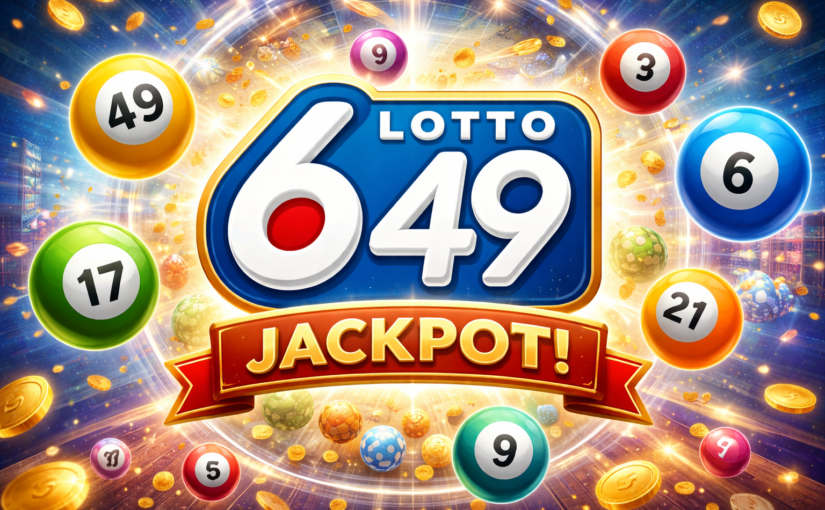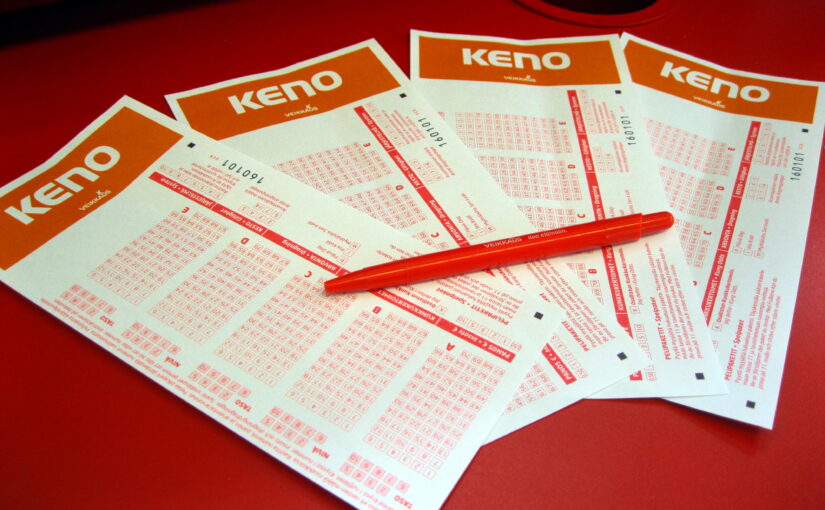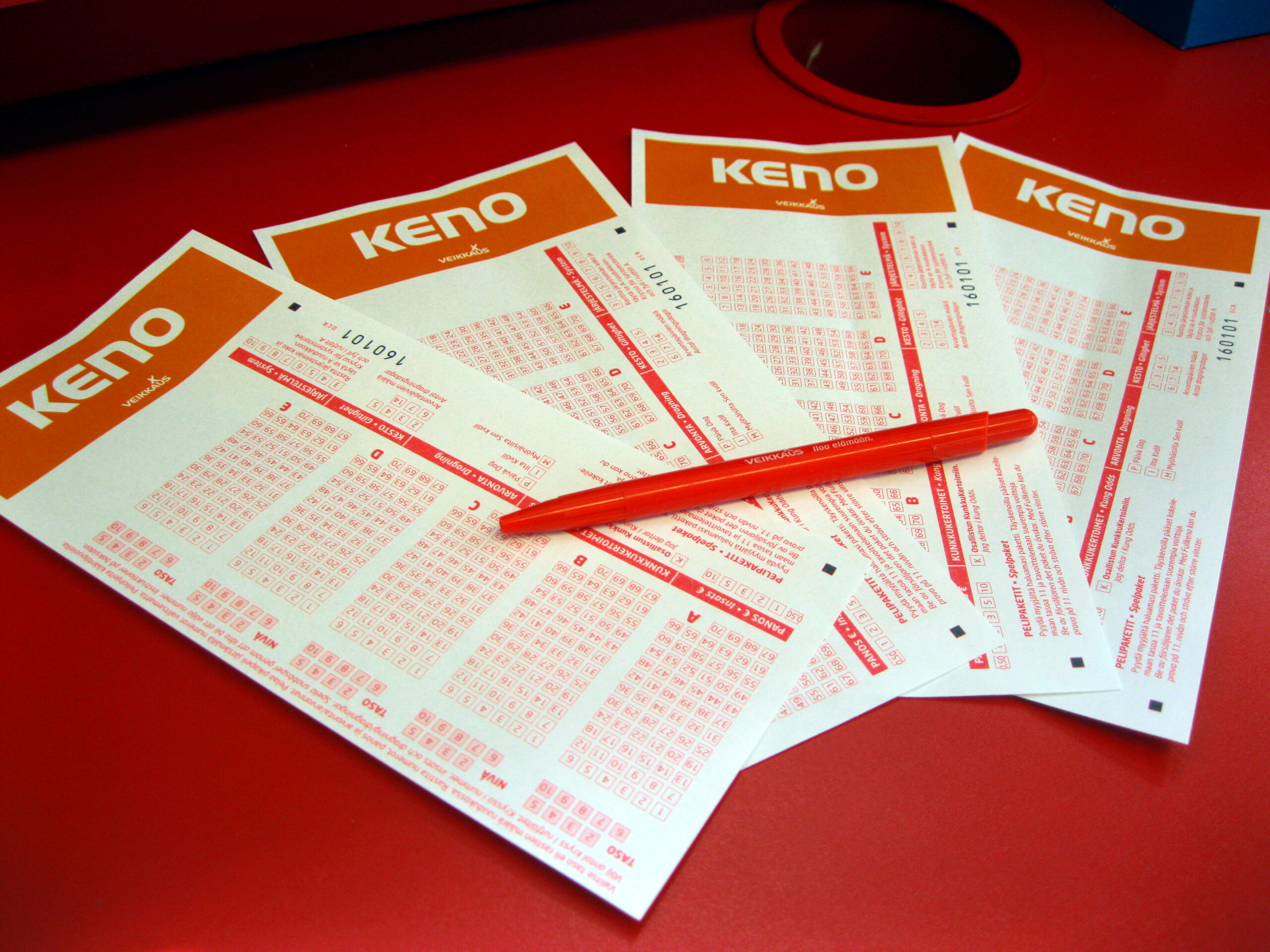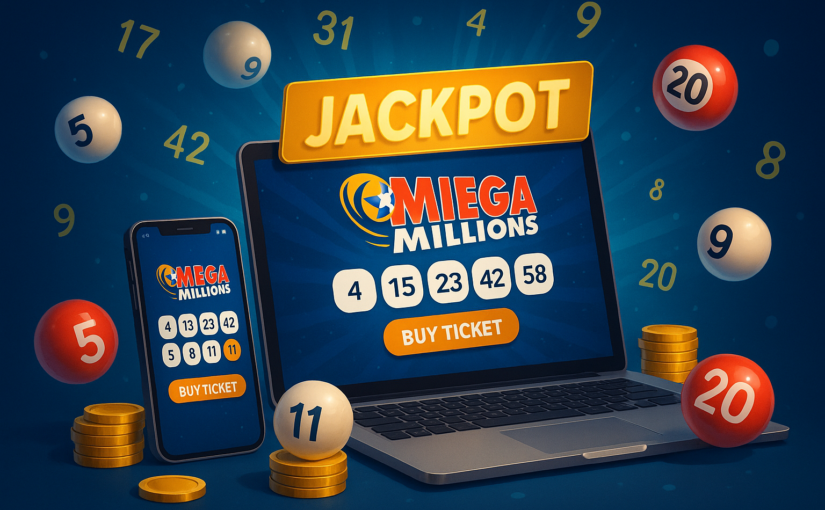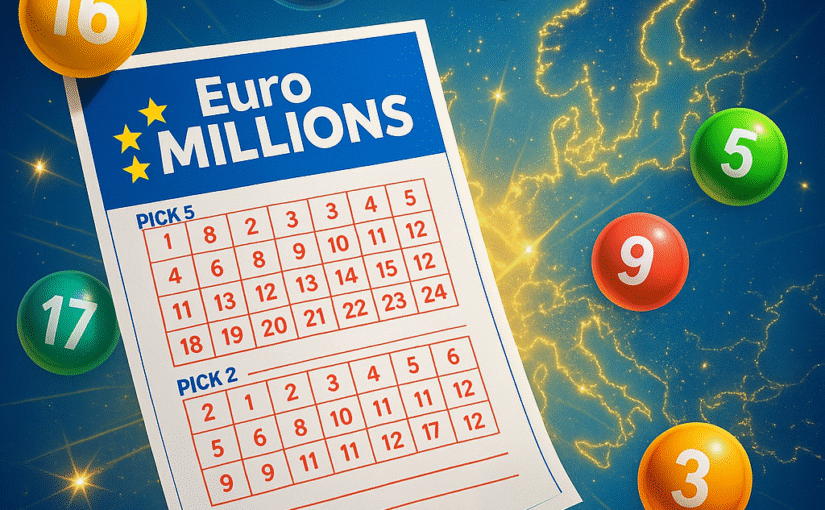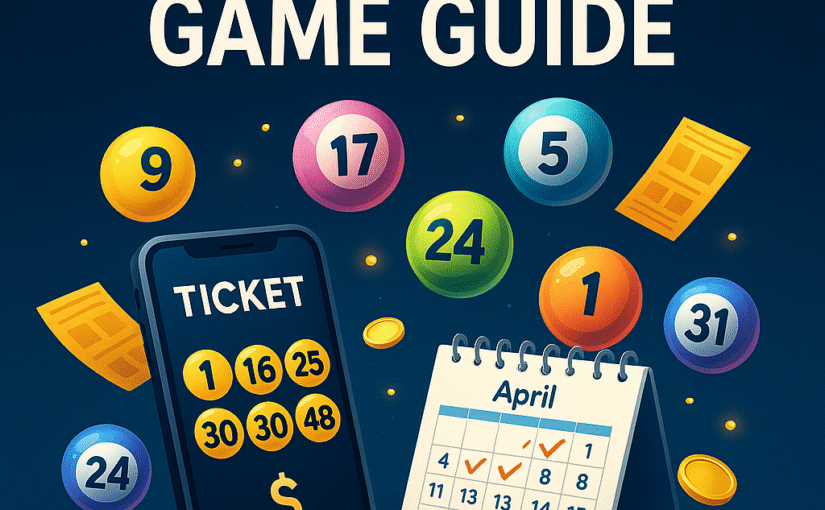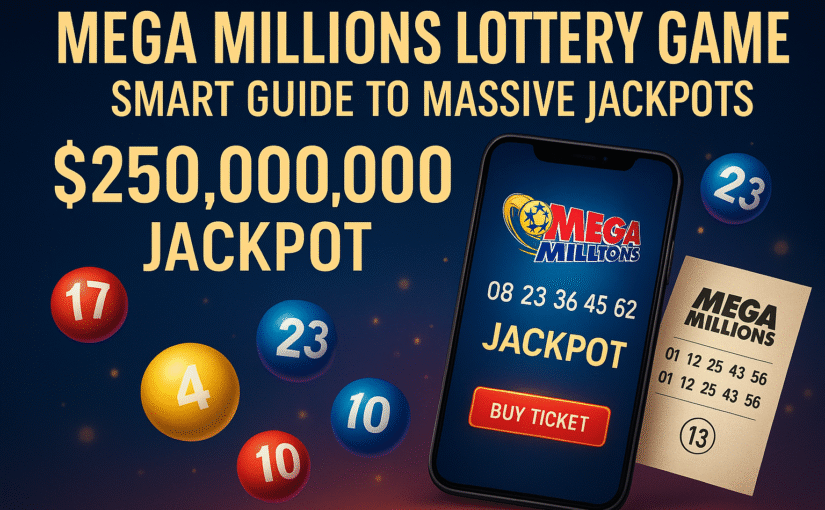The Mega Millions online lottery game is one of the most famous jackpot games in the world. With draws that regularly create multimillion-dollar winners, it appeals to players who dream big and don’t mind long odds. Thanks to online platforms, you can now join Mega Millions draws from your computer or smartphone—wherever it’s legally available.
This guide explains how the Mega Millions online lottery game works in 2025, including number format, rules, odds, prize tiers, and practical tips for playing safely and responsibly.
What Is the Mega Millions Online Lottery Game?
Mega Millions is a multi-state lottery game that offers enormous jackpots and multiple secondary prize levels. When you play online, you either:
- Buy official tickets directly from an authorized state or national lottery website, or
- Use a licensed online lottery courier or agent that purchases tickets on your behalf.
In both cases, it’s crucial to use a platform that is properly licensed and legal in your region.
Key features of Mega Millions:
- Huge starting jackpots that can roll over and grow
- Nine prize tiers, from matching only the Mega Ball to matching all numbers
- Optional add-ons (like Megaplier in many jurisdictions) to boost non-jackpot prizes
Number Format and Draw Schedule
Mega Millions uses a two-drum system, similar to other major jackpot games.
- Main numbers: Choose 5 numbers from a specific range (for example, 1–70).
- Mega Ball number: Choose 1 number from a second range (for example, 1–25).
To win the jackpot, you must match all five main numbers plus the Mega Ball in a single draw.
Draws are held on fixed days each week (commonly two or three times per week, such as Tuesday and Friday nights, depending on the latest rules in your jurisdiction). After the draw, official results are published on lottery websites, apps, and news outlets.
Mega Millions Prize Tiers and Payouts
Mega Millions offers nine different ways to win. While exact amounts and currency values vary by region, the structure generally includes:
- Jackpot (5 + Mega Ball) – Match all five main numbers plus the Mega Ball.
- Second Prize (5 + 0) – Match all five main numbers only.
- Third Prize (4 + Mega Ball) – Four main numbers plus the Mega Ball.
- Fourth Prize (4 + 0) – Four main numbers only.
- Fifth Prize (3 + Mega Ball) – Three main numbers plus the Mega Ball.
- Sixth Prize (3 + 0) – Three main numbers only.
- Seventh Prize (2 + Mega Ball) – Two main numbers plus the Mega Ball.
- Eighth Prize (1 + Mega Ball) – One main number plus the Mega Ball.
- Ninth Prize (0 + Mega Ball) – Only the Mega Ball, no main numbers.
The jackpot typically starts at a guaranteed minimum and rolls over when nobody matches all six numbers. This rollover system allows jackpots to reach extremely high levels, often attracting global attention.
Megaplier: Boosting Non-Jackpot Prizes
Many Mega Millions tickets allow you to add a paid option called Megaplier:
- For an extra fee, non-jackpot prizes are multiplied by a random value (often 2x, 3x, 4x, or 5x).
- The Megaplier is drawn separately before the main numbers.
- Jackpots are not multiplied—only lower-tier prizes.
For example, if you win a $500 third-tier prize and the Megaplier for that draw is 4x, your prize becomes $2,000 (subject to local rules and caps).
Odds of Winning the Mega Millions Online Lottery Game
Mega Millions is a classic long-odds lottery game. The exact odds depend on the current number matrix, but in general:
- Odds of winning the jackpot are extremely low (tens of millions to one).
- Odds of winning any prize are much better, because small prizes require fewer matching numbers.
Typical patterns:
- Jackpot: Extremely rare
- Second prize: Very rare
- Lower tiers: Appear more frequently but pay smaller amounts
Understanding these odds is essential. It reminds you that while massive wins are possible, they are never likely, and lottery play should always be treated as entertainment.
How to Play Mega Millions Online Step by Step
Playing the Mega Millions online lottery game is easy once you know the process.
1. Select a Licensed Online Platform
Depending on where you live, options may include:
- Official lottery websites or apps
- Authorized online courier services
- Licensed international lottery agents (where permitted)
Check that the platform:
- Displays clear licensing and regulatory information
- Uses secure HTTPS connections and reputable payment options
- Explains how tickets are purchased and where they’re stored
- Provides customer support and transparent terms and conditions
2. Create and Verify Your Account
Most platforms require:
- Basic registration (name, email, password).
- Age verification to confirm you’re legally allowed to play.
- ID verification for larger withdrawals or big wins.
This protects both you and the operator.
3. Choose Your Mega Millions Numbers
You can usually:
- Pick your own 5 main numbers and 1 Mega Ball manually, or
- Use a Quick Pick (or “Lucky Dip”) option where the system randomly selects numbers for you.
From a mathematical standpoint, both methods are equally random; there is no advantage to birthdays, patterns, or “lucky” numbers.
4. Decide on Extras and Draws
You can often:
- Add the Megaplier option for a small additional cost per line.
- Buy tickets for multiple upcoming draws in advance.
- Join a syndicate or group play option to share more lines with other players.
Once you’ve chosen your options, confirm the total ticket cost and proceed to payment.
5. Save Your Digital Ticket
After purchasing:
- Take note of the draw date.
- Save your digital ticket or confirmation email.
- Some apps also show your entries under “My Tickets” or similar menus.
If you win, this record confirms your participation.
Playing Mega Millions in Syndicates (Group Play)
A syndicate is a group of players who pool their money together to buy more tickets.
Advantages
- More lines = more overall chances to win something.
- Costs are shared among everyone.
Trade-Offs
- Any prizes are divided among all syndicate members.
- You must trust the organizer or use an automated syndicate system on a licensed platform.
Online syndicates are a popular way to improve coverage while keeping individual costs reasonable.
Smart Strategies for the Mega Millions Online Lottery Game
You can’t influence the draw, but you can control your behavior and spending.
1. Set a Strict Budget
Before playing:
- Decide how much you can comfortably spend per draw or per month.
- Treat this amount as entertainment, not investment.
- Never use rent, bills, or savings for lottery tickets.
2. Avoid Number Selection Myths
Myths include:
- Believing certain numbers are “hot” or “due.”
- Only using birthdays (which limit your range to 1–31).
- Avoiding previously drawn numbers.
In reality, each draw is independent, and all valid combinations have the same chance of appearing.
3. Don’t Chase Jackpots or Losses
Huge rollovers can create “jackpot fever,” tempting you to buy far more tickets than usual. Stay disciplined:
- Stick to your budget regardless of jackpot size.
- Don’t spend more to “win back” previous losses; lottery outcomes are purely random.
4. Use Responsible Gambling Tools
Many platforms provide:
- Deposit limits
- Spending reports
- Self-exclusion options
Use these if you find it difficult to stay within your planned budget.
Safety, Legality, and Claiming Winnings
Because lottery prizes can be substantial, understanding the legal and practical side of winning is vital.
Legal Eligibility
Check:
- Whether online lottery play is permitted in your region.
- Any age or residency requirements.
Avoid unlicensed sites, as they may not honor large payouts or protect your funds properly.
Claiming Prizes
On legitimate platforms:
- Small prizes are often credited automatically to your online wallet.
- Larger wins may require extra verification and possibly a direct bank transfer or in-person claim.
Always read the platform’s payout policy so you know exactly what to expect if you land a big prize.
Playing Mega Millions Online on Mobile in 2025
Most lottery platforms support mobile play via responsive websites or dedicated apps.
Benefits:
- Buy tickets, check results, and manage syndicates from your phone.
- Receive push notifications when draws are near or results are in.
- Keep a digital record of all your entries.
Tips:
- Use secure connections and avoid public Wi-Fi for payments.
- Enable security features like PIN, fingerprint, or face unlock for the app.
- Log out when using shared or public devices.
Responsible Gambling: Keeping Mega Millions Fun
Mega Millions online is exciting, especially when jackpots climb. But it’s crucial to keep your expectations realistic:
- The jackpot is extremely difficult to win.
- The game should never be used as a financial plan or way out of debt.
- If you feel stress, guilt, or pressure around lottery spending, take a break.
If gambling begins to negatively affect your life, relationships, or finances, consider seeking help from professional support organizations in your area.
Conclusion: Is the Mega Millions Online Lottery Game Worth Playing?
The Mega Millions online lottery game offers massive jackpots, accessible ticket prices, and the convenience of playing from home or on mobile. It’s best enjoyed as an occasional thrill: a small cost for the excitement of imagining “what if.”
If you:
- Use licensed platforms
- Set and respect a firm budget
- Understand the long odds and play mainly for fun
- Consider syndicates without overspending
then Mega Millions can be a safe, exciting part of your entertainment in 2025—regardless of whether your numbers ever match the jackpot.
